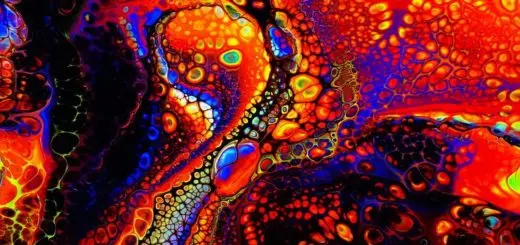What Is the Relationship Between Consciousness and Emotions?

Before diving in, please note: This post is for informational purposes only. If you’d like to know more about how we approach topics, feel free to check out our friendly Disclaimer Page.
Hey there, amazing readers! 
We’re committed to delivering quality posts, and your support (even just sticking around despite the ads) means everything to us. So, bear with us, and thanks for helping us keep the good vibes rolling. Now, on to the fun stuff!
TRANSLATE BUTTON AT THE END OF THE ARTICLE
Understanding Consciousness and Emotions
Consciousness and emotions are two intricate aspects of human experience that are deeply interconnected.
Consciousness refers to the state of being aware of and able to think about one’s own existence, sensations, thoughts, and feelings.
On the other hand, emotions are complex psychological states that arise in response to internal or external stimuli.
Understanding the relationship between these two phenomena is crucial for comprehending human behavior and decision-making processes.
Defining Consciousness and Emotions
Consciousness can be defined as the awareness of internal and external stimuli, encompassing thoughts, sensations, perceptions, and emotions.
It involves the ability to process information, make decisions, and experience subjective states of being.
Emotions, on the other hand, are intense feelings or sensations that are often accompanied by physiological changes.
They play a vital role in shaping our behavior, influencing our decision-making processes, and guiding our interactions with the world around us.
The Role of Consciousness in Emotions
Consciousness plays a significant role in the experience and regulation of emotions.
It enables individuals to be aware of their emotional states, understand the reasons behind their feelings, and manage their reactions effectively.
Without consciousness, emotions would lack the depth and complexity that makes them uniquely human.
Conscious awareness allows individuals to reflect on their emotions, explore their underlying causes, and develop strategies for coping with challenging feelings.
How Emotions Influence Consciousness
Emotions have a profound impact on consciousness, shaping our perceptions, thoughts, and overall mental state.
Positive emotions such as joy and love can enhance cognitive processes, improve memory retention, and increase focus and attention.
Conversely, negative emotions like fear and anger can cloud judgment, impair decision-making, and lead to irrational behavior.
Emotions can either expand or limit our conscious awareness, depending on their nature and intensity.
Biological Basis of Consciousness and Emotions
The relationship between consciousness and emotions is rooted in the intricate workings of the human brain.
Neurotransmitters, hormones, and neural pathways play a crucial role in regulating both consciousness and emotions.
The limbic system, which includes structures like the amygdala and hippocampus, is particularly involved in emotion processing.
At the same time, the prefrontal cortex, responsible for higher-order cognitive functions, plays a key role in conscious awareness and self-regulation of emotions.
Cognitive Processes in Consciousness and Emotions
Cognitive processes such as attention, memory, and reasoning are closely intertwined with both consciousness and emotions.
Conscious awareness allows individuals to attend to specific stimuli, regulate their emotional responses, and engage in rational thinking.
Emotions, on the other hand, can influence cognitive processes by directing attention towards salient information, shaping memory formation, and impacting decision-making.
The interaction between cognition, consciousness, and emotions is essential for adaptive behavior and psychological well-being.
The Connection Between Mindfulness and Emotions
Mindfulness, the practice of being fully present and aware of one’s thoughts, feelings, and sensations, plays a crucial role in regulating emotions and enhancing conscious awareness.
By cultivating mindfulness, individuals can develop a non-judgmental attitude towards their emotions, observe them without attachment, and respond to them in a more balanced manner.
Mindfulness practices such as meditation and deep breathing can help individuals navigate their emotional landscape with greater clarity and resilience.
Impact of Emotions on Self-Awareness
Emotions are integral to self-awareness, as they provide valuable insights into one’s inner world and relational dynamics.
By paying attention to their emotional responses, individuals can gain a deeper understanding of their needs, values, and beliefs.
Emotions serve as signals that alert individuals to potential threats or opportunities, guiding them towards adaptive behaviors and meaningful interactions.
Self-awareness, fostered through emotional intelligence, is essential for personal growth, effective communication, and healthy relationships.
Explore the Path to Spirituality and Enlightenment – Start Here.
Psychological Perspectives on Consciousness
From a psychological standpoint, consciousness and emotions are viewed as essential components of human experience that influence behavior, cognition, and social interactions.
Psychoanalytic theories emphasize the role of unconscious processes in shaping emotions and behavior, while cognitive theories focus on conscious awareness and information processing.
Humanistic perspectives highlight the importance of self-awareness, emotional expression, and personal growth in fostering psychological well-being.
Integrating these diverse perspectives can lead to a more comprehensive understanding of the complex relationship between consciousness and emotions.
Managing Emotions Through Conscious Awareness
Developing conscious awareness of one’s emotions is essential for effective emotion regulation and mental health.
By observing and labeling their emotional experiences, individuals can create distance from intense feelings, gain perspective on their triggers, and choose how to respond thoughtfully.
Practices such as journaling, mindfulness meditation, and cognitive-behavioral therapy can help individuals increase their emotional awareness, identify maladaptive patterns, and cultivate healthier coping strategies.
By acknowledging and processing their emotions consciously, individuals can enhance their emotional intelligence and overall well-being.
Importance of Emotional Intelligence in Consciousness
Emotional intelligence, the ability to recognize, understand, and manage one’s own emotions, as well as those of others, plays a crucial role in consciousness and emotional regulation.
Individuals with high emotional intelligence are better equipped to navigate complex social interactions, communicate effectively, and make sound decisions.
By developing emotional intelligence skills such as empathy, self-regulation, and social awareness, individuals can enhance their conscious awareness, build stronger relationships, and lead more fulfilling lives.
Exploring the Complex Relationship Between Consciousness and Emotions
In conclusion, the relationship between consciousness and emotions is multifaceted and dynamic, shaping our perception of the world and guiding our responses to it.
Conscious awareness allows individuals to reflect on their emotional experiences, regulate their feelings, and make informed decisions.
Emotions, in turn, influence cognitive processes, attention, memory, and behavior, creating a continuous interplay between consciousness and emotional states.
By understanding the complex relationship between consciousness and emotions, individuals can cultivate greater self-awareness, emotional intelligence, and psychological well-being.

The Enlightenment Journey is a remarkable collection of writings authored by a distinguished group of experts in the fields of spirituality, new age, and esoteric knowledge.
This anthology features a diverse assembly of well-experienced authors who bring their profound insights and credible perspectives to the forefront.
Each contributor possesses a wealth of knowledge and wisdom, making them authorities in their respective domains.
Together, they offer readers a transformative journey into the realms of spiritual growth, self-discovery, and esoteric enlightenment.
The Enlightenment Journey is a testament to the collective expertise of these luminaries, providing readers with a rich tapestry of ideas and information to illuminate their spiritual path.
Our Diverse Expertise
While our primary focus is on spirituality and esotericism, we are equally passionate about exploring a wide range of other topics and niches 

To ensure we provide the most accurate and valuable insights, we collaborate with trusted experts in their respective domains 
Our blog originally focused on spirituality and metaphysics, but we’ve since expanded to cover a wide range of niches. Don’t worry—we continue to publish a lot of articles on spirituality! Frequently visit our blog to explore our diverse content and stay tuned for more insightful reads.


































































